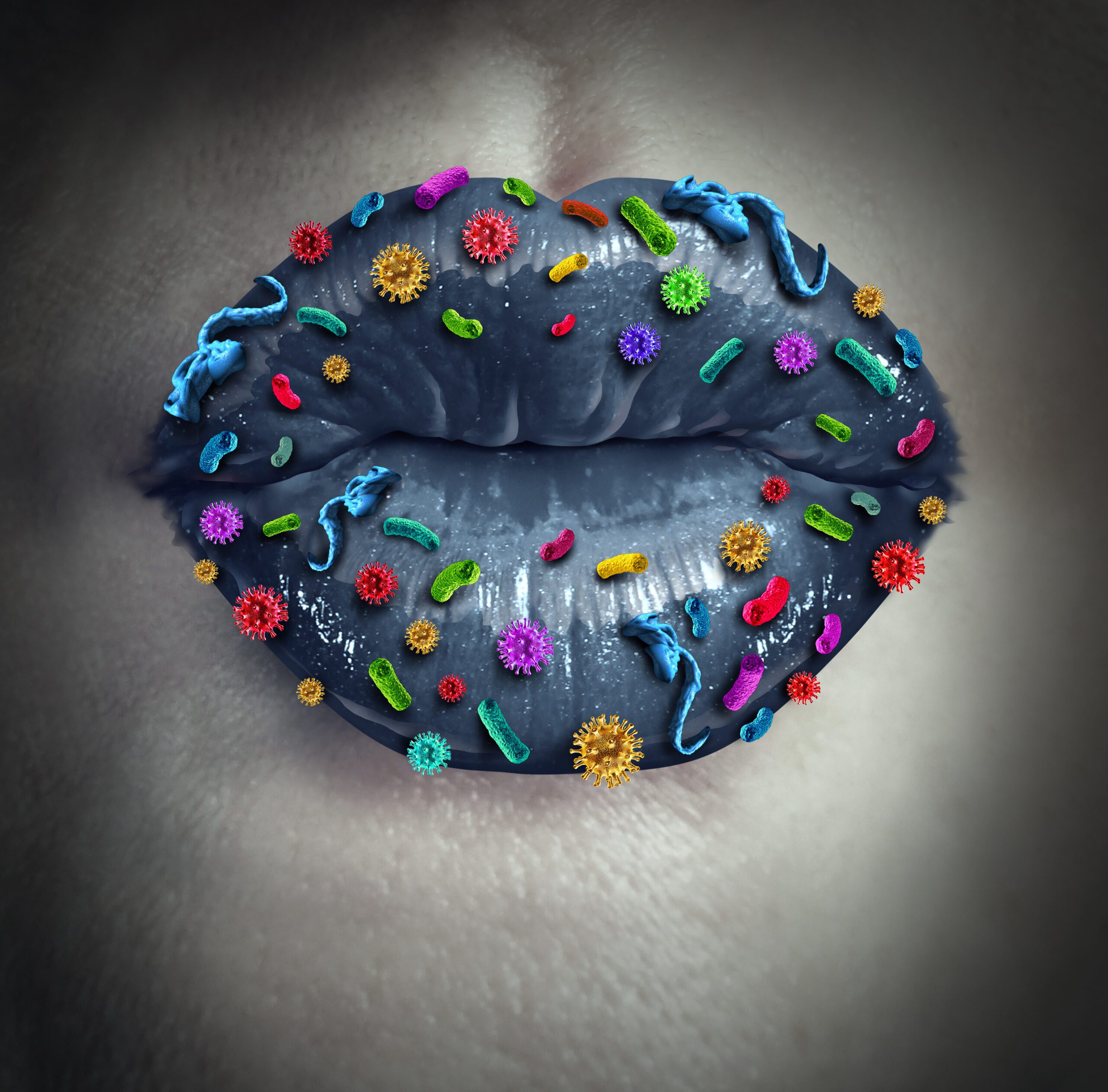
How about a lot of germs?
The human body contains more bacteria than human cells – about 10 times more. When you think about it, it’s little wonder that kissing always involves an exchange of germs. Dr. Philip M. Tierno, Jr., Director of Clinical Microbiology and Immunology at NYU Langone Medical Center says, “Kissing really has a purpose, and in doing so, there is an exchange of microorganisms.”
But are these microorganisms good for us or bad for us? It depends on who you ask.
A 2009 study led by a team of British scientists found that the physically intimate act of kissing partly stems from an evolutionary driving force designed to build up the immune system. This is especially true for pregnant women as smooching helps women develop an immunity to cytomegalovirus – a virus that can cause a great deal of harm to an unborn fetus. “Female inoculation with a specific male’s cytomegalovirus is most efficiently achieved through mouth-to-mouth contact and saliva exchange, particularly where the flow of saliva is from the male … to the female,” states Dr. Colin Hendrie, medical researcher.
Other experts have a different idea about the kiss. Dr. Tierno believes that the exchange of germs during a kiss is a byproduct, not the intention. Instead, Tierno thinks that kissing originated out of the need for parents to feed their young. “Early humans, they knew nothing about the immune system, yet they were kissing. It originated by most authorities, from the direct mouth-to-mouth regurgitation of food.”
Gross.
Though humans no longer feed infants in this manner (thank goodness), other members of the animal kingdom still do, the most obvious example being birds. Obviously, if food is coming from the mouth, so are germs.
Good germs or bad germs?
Most of the bacteria that resides inside and outside out bodies is completely harmless. And since according to a recent study there can be up to 500 different bacteria species on our skin alone, that’s a good thing. Actually, just one percent of all known bacterial flora are pathogenic. The rest do no harm. Tierno says, “For the main art of kissing, you do exchange flora. Sometimes it’s bad and sometimes it means nothing.”
Kissing posing a risk, obviously, when you or your partner is sick. Even though very few illnesses are transferred through “deep kissing,” germs that cause strep throat, mono, and herpes can spread though kissing. Also, kissing should be avoided if either partner has lesions or sores in and on the mouth.
By the way, even though you may think it goes without saying, don’t kiss your pets on the mouth – at all. Dogs can carry pathogenic bacteria, worms, and fungi in their mouth and cat kisses are even more risky. There are safer ways to show your furry friends how much you love them.
But when it comes to kissing your human loved ones, there’s no need to be a germaphobe. Just use your common sense as well as your heart when it comes to showing your affection.

A new study suggests that a widely used sugar substitute found in diet sodas, chewing gum, and low-sugar yogurt may elevate insulin levels. This could increase the long-term risk of heart disease. “Artificial sweeteners have infiltrated nearly all types of food, making it crucial to understand their long-term health effects,” said Yihai Cao, senior author […]

Diet Coke has long been a fan-favorite among soda lovers who want a fizzy, guilt-free alternative to traditional soft drinks. While its zero-calorie, zero-sugar label makes it seem like a healthier option, the reality is far more concerning. Despite its undeniable popularity, Diet Coke’s nutritional profile has raised red flags among health experts for years. […]

New study shows that embracing an anti-inflammatory, plant-forward diet can support cognitive function and help reduce the risk of dementia. What You Eat Shapes Your Brain The food you eat doesn’t just impact your body—it also affects your brain. Research suggests that eating an anti-inflammatory, plant-based diet can help improve memory, focus, and overall brain […]